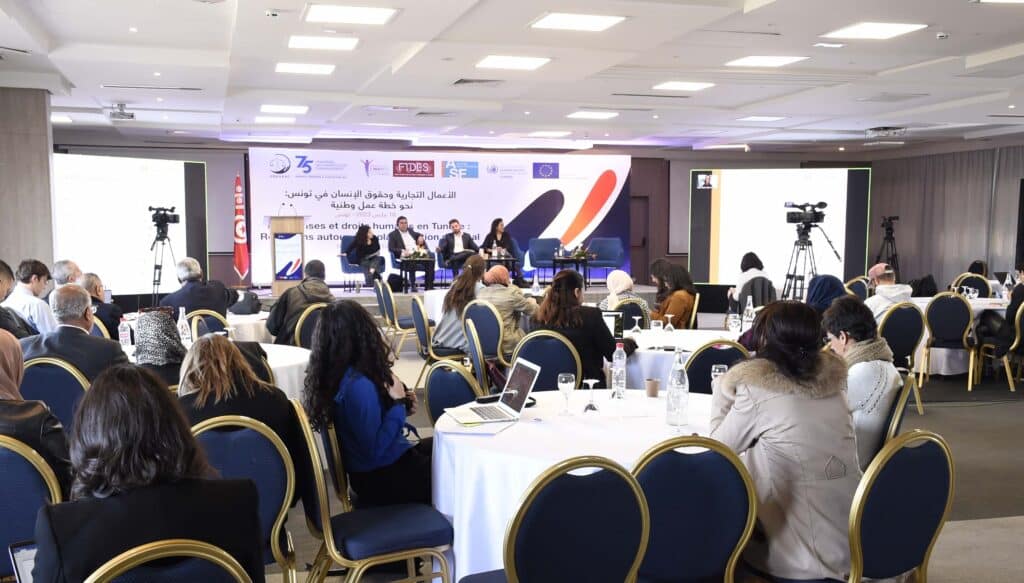
Conference on Business and Human Rights, March 2023, Tunisia
In the global economy, private companies are no longer simply commercial players, they are shaping political landscapes and societal dynamics. The emergence of transnational and multinational companies has redefined the notions of economic borders, which have gradually disappeared in favour of a globalised economy. These entities now have a power and influence that can surpass that of States, and that goes well beyond the production and distribution of goods and services. They influence political agendas and can affect the lives of entire communities. Their activities can pose major threats to the fundamental rights of individuals, and also encourage corporate capture and corruption.
The impact of their activities on fundamental rights and the environment is such that significant progress in these areas cannot be seriously envisaged without the introduction of major reforms at national, regional and international level to ensure the accountability of economic players.
This is why ‘Business and human rights’ is one of ASF’s priority themes. Through capacity-building activities and advocacy efforts, ASF aims to contribute to addressing these systemic challenges by defending the rights of affected communities and tackling the impunity of offending companies.
ASF believes that it is necessary and urgent to change the balance of power by creating coalitions of civil society actors, including lawyers, to promote the protection of human rights and greater corporate accountability. As part of our work, we prioritise actions aimed at empowering people to face the challenges posed by corporate activities and the resulting human rights violations. Economic development must serve human rights, not undermine them.
ASF works to empower local communities, particularly those in vulnerable situations, by strengthening their commitment and participation in favour of transparent and participatory governance. It is crucial to ensure access to justice and remedies for victims and affected populations in order to assert their rights and obtain just reparation.
At the same time, ASF is working with its partners to advocate for effective and binding legal frameworks to ensure greater accountability of economic actors.
In 2023, ASF produced a special series of academic essays in collaboration with the University of Sfax in Tunisia on the issue of business and human rights. As part of the PREVENT project, run by ASF in collaboration with the Tunisian Forum for Economic and Social Rights (FTDES) and IWATCH, law students and young researchers have written academic articles on the need to work towards a development model that respects everyone’s rights and protects the environment.
In the DRC, Congolese civil society, with the support of ASF, promoted mobilisations leading to the publication of communiqués, such as the one concerning the province of Central Kongo, where affected communities are still waiting for compensation from oil extraction companies for environmental damage.
In East Africa, ASF supported advocacy efforts, notably by participating in the Business and Human Rights Forum in Kampala and the annual Business and Human Rights Forum in Geneva with our partner Civic Response on Environment and Development – Uganda (CRED).
ASF also joined the Belgian working group on Corporate Accountability. It played an active role in lobbying for a European directive aimed at enshrining in legislation an effective and binding duty of care for all companies. The coalition brings together some twenty Belgian civil society organisations, including the two main NGO coalitions (CNCD-11.11.11 and 11.11.11), the three main Belgian trade union organisations (ACV-CSC, FGTB-ABVV, ACLVB-CGSLB), as well as various human rights and environmental NGOs and organisations.



